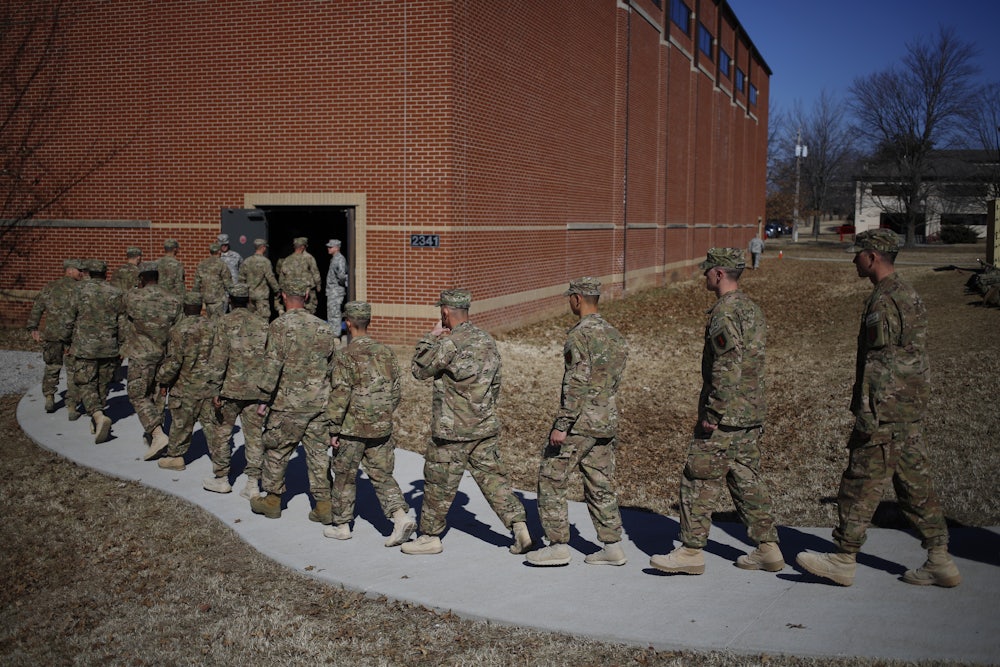The international news agency has published an in-depth exposé, based on two-years of reporting, on lead poisoning in military housing. The disheartening finding of the reporting is that lead poisoning is a problem in more 3,800 neighborhoods. As the report notes:
Reuters obtained medical data from the Army showing that at least 31 small children tested high for lead at a Fort Benning hospital over a recent six-year period. All tested above the U.S. Centers for Disease Control and Prevention’s threshold for elevated lead levels – 5 micrograms per deciliter of blood. Any child who tests high warrants a public health response, the CDC says.
Army data from other clinics showed at least 77 more high blood-lead tests for children at Fort Polk in Louisiana, Fort Riley in Kansas, and Fort Hood and Fort Bliss in Texas.
From 2011 to 2016, Brooke Army Medical Center in Texas – which processes blood tests from many bases nationwide – registered more than 1,050 small children who tested above the CDC’s elevated threshold, the center’s records show.
The roots of the problem go back to the privatization of military housing in the 1990s. The military contractors tasked with running housing have been slow to build new residences and the military has provided meagre funding for upkeep and renovation. Also, the close ties between the military and contractors has led a code of silence about housing problems. Lead contamination is part of a larger issue with contamination at military sites. In June, it was revealed that the White House had delayed the release of a report on the contamination of military base drinking water with perfluoroalkyls.
As Reuters observes, “Military families can face special difficulties if they complain about hazards in their homes, however. They are taking on landlords who are in business with their employer. Among the 60 interviewed for this story, more than half expressed fear that being identified could hurt a military member’s career.”
“These are families making sacrifices by serving,” toxicity research Dr. Bruce Lanphear told Reuters. “It appears that lead poisoning is sometimes the cost of their loyalty to the military.”
